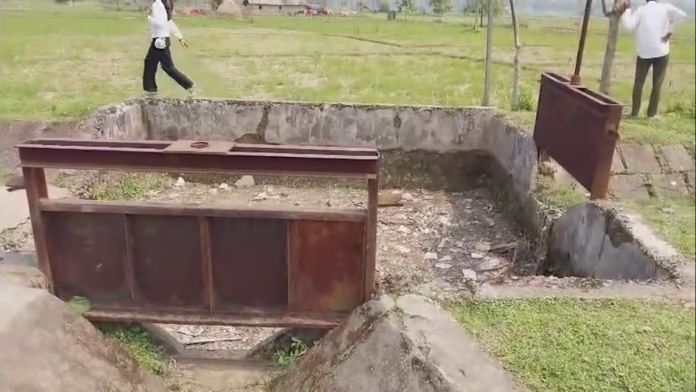Ledo Mulang No. 1 Bengali Village, under the 83 Margherita Assembly Constituency, continues to struggle for the most basic necessities. Despite repeated pleas to the authorities, residents remain without proper roads, drinking water, and electricity. The village stands as a stark reminder of government neglect, with its people forced to navigate daily life amid crumbling infrastructure and inadequate resources.
Elderly residents recall promises made by politicians during election campaigns, but those assurances never materialized into tangible improvements. The lack of proper roads makes transportation a constant challenge, especially during the monsoon season when muddy paths turn nearly impassable. Children face difficulties reaching school, and emergencies become life-threatening due to delayed medical assistance.
Water scarcity remains a major issue in the village. Women walk long distances to fetch water from unreliable sources, risking health problems due to contamination. Complaints about unsafe drinking water have been ignored for years, leaving villagers dependent on untreated sources that lead to frequent illnesses. Many families have reported stomach infections, but medical support remains scarce.
Electricity is another luxury that residents rarely enjoy. Power outages last for hours, sometimes days, making it difficult for students to study and businesses to operate. Several households still rely on kerosene lamps, a situation that highlights the widening gap between urban development and rural deprivation. Villagers have repeatedly approached local authorities, but their grievances have either been dismissed or met with temporary fixes that fail to address the root of the problem.
The lack of healthcare facilities adds to the hardships. The nearest hospital is miles away, making access to medical treatment a struggle. Pregnant women, elderly patients, and children face the worst consequences of this neglect. In emergencies, families are left with no choice but to rely on overcrowded facilities in nearby towns, often leading to fatal delays.
Frustration has been mounting among the villagers, who feel abandoned by the administration. Several community leaders have urged the government to take immediate action, emphasizing the urgent need for improved infrastructure, clean water, and reliable electricity. Without these essential services, residents believe their village will continue to be left behind while development flourishes elsewhere in Assam.
Despite the odds, the people of Ledo Mulang No. 1 Bengali Village continue to fight for their rights. They have organized meetings, signed petitions, and reached out to authorities in the hope that their voices will finally be heard. However, their patience is wearing thin, and many fear that without drastic action, their village will remain trapped in a cycle of neglect and hardship.
Many villagers have considered migrating to nearby towns in search of a better life, but leaving behind their ancestral homes is not an easy decision. Generations have lived in Ledo Mulang No. 1 Bengali Village, relying on agriculture and small-scale businesses for survival. However, declining crop yields due to erratic water supply and poor irrigation facilities have made farming unsustainable. The younger generation, disillusioned by the lack of opportunities, is increasingly looking for work outside the village, leading to fears of depopulation.
Education remains another major concern. The village school lacks basic infrastructure, including sufficient classrooms and trained teachers. Parents worry about their children’s future, as they struggle with outdated teaching methods and a shortage of learning materials. Many students drop out due to these challenges, further reducing their chances of breaking the cycle of poverty. Some families send their children to schools in nearby towns, but high transportation costs make this an unsustainable option for many.
Livelihood opportunities are also limited, forcing residents to depend on seasonal jobs. Daily wage laborers travel long distances for work, often returning home late at night. Women in the village, despite their willingness to contribute financially, find little to no employment opportunities. Many have expressed interest in skill development programs, but the absence of government-backed initiatives has left them without proper guidance or training.
As frustration grows, community leaders have started mobilizing protests and seeking media attention to highlight their plight. Activists and social workers have stepped in to amplify their demands, urging government intervention before the situation worsens. While officials have promised improvements, villagers remain skeptical, having witnessed years of unfulfilled assurances.
Despite the neglect, the residents of Ledo Mulang No. 1 Bengali Village continue to hope for change. They believe that with the right policies and sustained efforts, their village can break free from its long-standing struggles. Until then, they remain resilient, fighting for a future where basic necessities are no longer considered a privilege.

